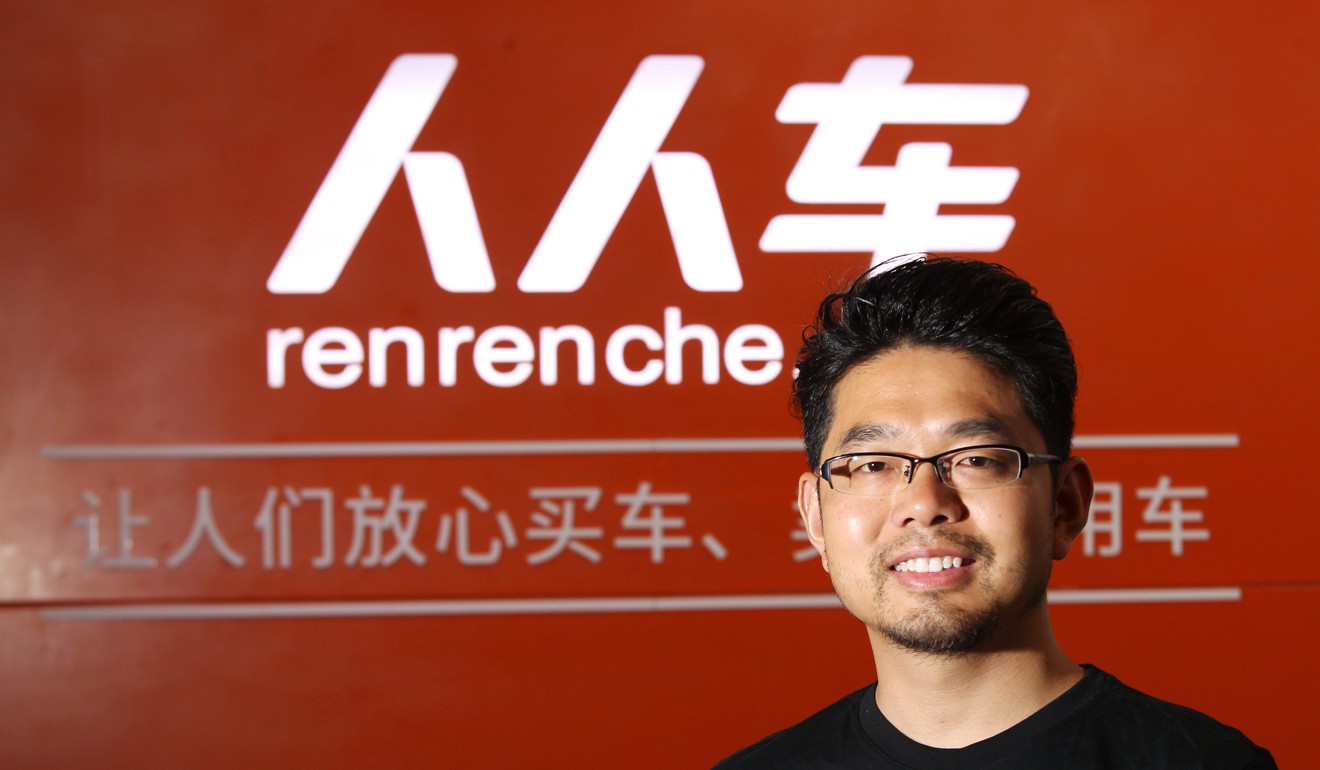
Meet the used car dealer who sold 1 million vehicles to China’s ride hailing giant Didi
For the poster child of China’s sharing economy, investing US$200 million in an online used car sales business had many scratching their heads. After all, Didi Chuxing co-founder Cheng Wei once declared that buying a car in the near future will be considered as unusual as buying a horse for transport today.
Don’t tell that to Li Jian, founder and chief executive of Renrenche, the company that Didi invested in six months ago. Li isn’t your typical used car salesman, who in the west have a bad reputation for high pressure sales tactics. The 38-year-old looks more like a geeky software programmer.
But Li was able to convince Didi to buy cars online – and lots of them.
“The plan is for Didi to purchase a million second-hand and new cars through us in the coming three years,” Li said, adding that some of the vehicles will be allocated to Didi drivers through rental and financial leasing arrangements.
Renrenche has been the semi-official car supplier to the ride-hailing king ever since Didi invested in the Beijing-based start-up last September, overtaking Tencent as its largest institutional investor.

Li believes 90 per cent of drivers on car-hailing platforms in China will be those who rent their cars as a full-time business instead of private car owners renting out “idle” vehicle time.
“It is a business decision after all. As leasing lowers the market entry and is more agile, it is easier for drivers to accept,” he said.
Last month Didi spokeswoman Jiang Mingzhuo confirmed that the company – with a customer base of 450 million people – would use self-owned vehicles as part of a short-term vehicle sharing platform, although she declined to comment on the size of the fleet.
Separately, Li explained that online platforms has effectively given birth to the nationwide second-hand car market because the emergence of consumer-to-consumer sales platforms have enabled consolidation of scattered resources and kept sellers from being discouraged by opaque and often cumbersome process.
Renrenche is expected to follow its rival Guazi.com in launching a guaranteed sales service, giving sellers a more accurate sales estimate for their vehicle and an indication of when it is likely to be sold.
A vast data pool of past transactions is the key behind such confidence, said Li. The company claims it is on track to break current monthly average of about 300,000 for-sale cars in March.

Wearing a T-shirt and black-framed glasses at work in his office on the outskirts of Beijing, Li downplayed his own ability in sourcing funding, but credited it to the industry.
“The second-hand car market is big enough to justify the attention,” he said. “Although Chinese are known to be reluctant to buy a used car, it is already a big space for those who do.”
Second-hand car sales have picked up in China over the past few years thanks to changes in the economy that have made it easier to own a car in the world’s biggest market, and as a result of policy support such as easing rules on auto mortgages. In 2017 12.4 million used cars were sold in the country, up 19.3 per cent year on year, according to the China Automobile Dealers Association. Total car ownership across the nation has surpassed 210 million.

The used car business has attracted some of the country’s biggest tech giants. Alibaba Group Holding, owner of the South China Morning Post, is the biggest investor behind SouChe after leading a US$335 million funding round for the start-up in November. Tencent Holdings has backed both Renrenche and Guazi, with the latter about to close US$818 million funding round led by the social media and entertainment giant. For its part, Renrenche is close to announcing a new fundraising round later this month.
Despite the competitive environment, Li said industry consolidation is unlikely at the moment because rivals are upgrading their services. For example, Renrenche will focus on developing auto financial services this year while exploring the after sales services market with Didi. He said the aim is to expand from a consumer to consumer (C2C) sales platform to a comprehensive service provider.
“Financial services will be a big boost to our revenue, allowing us to tap into our existing customer base,” Li said. “We will also offer clients standard after sales service, while Didi will take the lead in building an offline network of more than 100 shops in big Chinese cities.”

